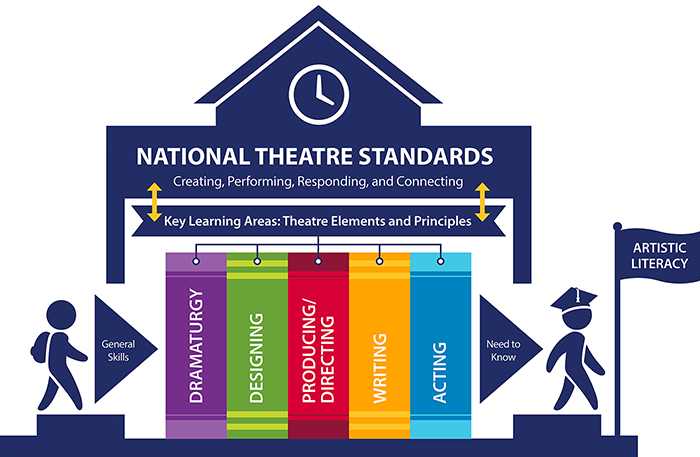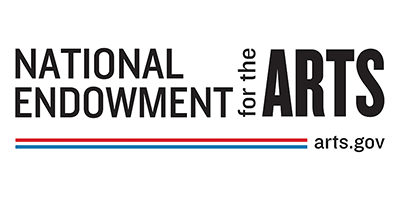


![]()



Click any box for resources by category





The EdTA Theatre Curriculum Framework Project was introduced in 2019, the result of a yearlong project funded in part by a grant from the National Endowment for the Arts. Teams of secondary theatre educators and teaching artists from around the nation collaborated with EdTA facilitators to create units of instruction and to work to frame best practice in theatre education. Beginning with the pioneering work of consultant Ken Bolinsky, the group articulated a conceptual framework for learning in theatre, including a set of elements and principles that define key learning aligned with the 2014 National Core Theatre Standards. The Project served a larger goal of expanding instructional practice and providing tools for theatre educators’ professional development.
The conceptual framework articulates a structure emphasizing mastery of commonly agreed upon elemental knowledge and skills: what students need to know rather than what’s nice to know. This mastery is further guided by sequential pre-K-12 standards-based instruction leading to artistic literacy.
The standards establish measurable learning targets while the elements and principles define the essential underlying concepts and competencies; together they are used to create curriculum, as represented by the books of units of instruction and assessment at the bottom of the image.
One way to determine the essential components of an art form is to define a set of elements and principles that are generally agreed upon by discipline practitioners. As a part of developing a model curriculum framework for theatre education, EdTA worked with teams of teachers and teaching artists to reach consensus on theatre elements and principles which may be used to focus instruction on key learning. The elements and principles articulated here reflect the teachable skills which are the core of standards-based curriculum and assessment.